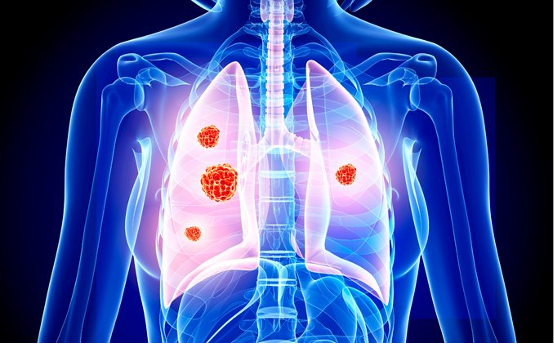Simple PCR Assay Accurately Differentiates Between Small Cell Lung Cancer Subtypes
April 10, 2024
Source: drugdu
 352
352
 Small cell lung cancer (SCLC), a rapidly progressing neuroendocrine malignancy, exhibits low survival rates. Despite its molecular and clinical heterogeneity, SCLC is presently treated as a single entity, without the use of predictive biomarkers, which leads to poor patient outcomes. Recent research has proposed dividing SCLC into four subtypes—labeled "A", "N", "P", and "I"—each characterized by distinct molecular signatures and treatment vulnerabilities. Initially, this classification relied on gene expression (RNA-seq) data. Further studies indicated that the same categorization could be recapitulated through the use of a reduced-representation bisulfite sequencing (RRBS) methylation profile. Although this classification system effectively predicts treatment responses, including to immunotherapy, in retrospective analyses, both RNAseq and RRBS techniques are too labor-intensive and slow for quick treatment decisions in an aggressive malignancy. Now, a pilot study published in the journal Cancer Cell has demonstrated the feasibility of a simple PCR assay to accurately differentiate between SCLC SCLC subtypes.
Small cell lung cancer (SCLC), a rapidly progressing neuroendocrine malignancy, exhibits low survival rates. Despite its molecular and clinical heterogeneity, SCLC is presently treated as a single entity, without the use of predictive biomarkers, which leads to poor patient outcomes. Recent research has proposed dividing SCLC into four subtypes—labeled "A", "N", "P", and "I"—each characterized by distinct molecular signatures and treatment vulnerabilities. Initially, this classification relied on gene expression (RNA-seq) data. Further studies indicated that the same categorization could be recapitulated through the use of a reduced-representation bisulfite sequencing (RRBS) methylation profile. Although this classification system effectively predicts treatment responses, including to immunotherapy, in retrospective analyses, both RNAseq and RRBS techniques are too labor-intensive and slow for quick treatment decisions in an aggressive malignancy. Now, a pilot study published in the journal Cancer Cell has demonstrated the feasibility of a simple PCR assay to accurately differentiate between SCLC SCLC subtypes.
In the pilot study, Nucleix (San Diego, CA, USA) developed a methylation-based PCR assay to distinguish SCLC subtypes using its EpiCheck platform. This technology combines methylation-sensitive restriction endonuclease (MSRE) digestion with quantitative PCR (qPCR) amplification to identify differential methylation at the DNA level. Nucleix developed the 13-marker PCR assay based on a recent study that used DNA methylation to successfully detect SCLC in plasma samples from heavy smokers—with a sensitivity of 94% and specificity of 95%. The company developed novel biomarkers to classify SCLC into subtypes, aiming to reduce the time between diagnosis and tailored treatment interventions. The 13-marker PCR assay accurately classified 97% of the SCLC tissue samples within a blinded cohort in the pilot study.
“For decades, SCLC was considered a single, monolithic entity resulting in our current clinical protocols being based on disease stage, with no consideration of biomarkers that have predictive or prognostic significance, leading to expectedly poor outcomes,” said Mathias Ehrich, M.D., chief scientific officer. “These data show that we can potentially reduce the time between patient diagnosis and initiation of tailored treatment or inclusion in clinical studies from a month, in best-case scenarios, to just a few days, by using our PCR EpiCheck-based assay for the classification of SCLC subtypes.”
Source:
https://www.labmedica.com/molecular-diagnostics/articles/294800794/simple-pcr-assay-accurately-differentiates-between-small-cell-lung-cancer-subtypes.html
Read more on
- Gusekirumab Injection Accepted by CDE, Multiple Pipelines Advancing Simultaneously March 4, 2026
- Yifan Pharmaceutical’s teriparatide injection has been accepted by the CDE (Center for Drug Evaluation), adding a new domestic player to the osteoporosis treatment field March 4, 2026
- //news.yaozh.com/archive/47318.html PD-1 sales surge March 4, 2026
- A major breakthrough! Roche’s oral BTK inhibitor achieves its third Phase III clinical trial victory, a game-changer in the multi-billion dollar MS (manufactured pharmaceuticals) market. March 4, 2026
- GB19 Injection Approved for Clinical Trials of Cutaneous Lupus Erythematosus March 4, 2026
your submission has already been received.
OK
Subscribe
Please enter a valid Email address!
Submit
The most relevant industry news & insight will be sent to you every two weeks.



